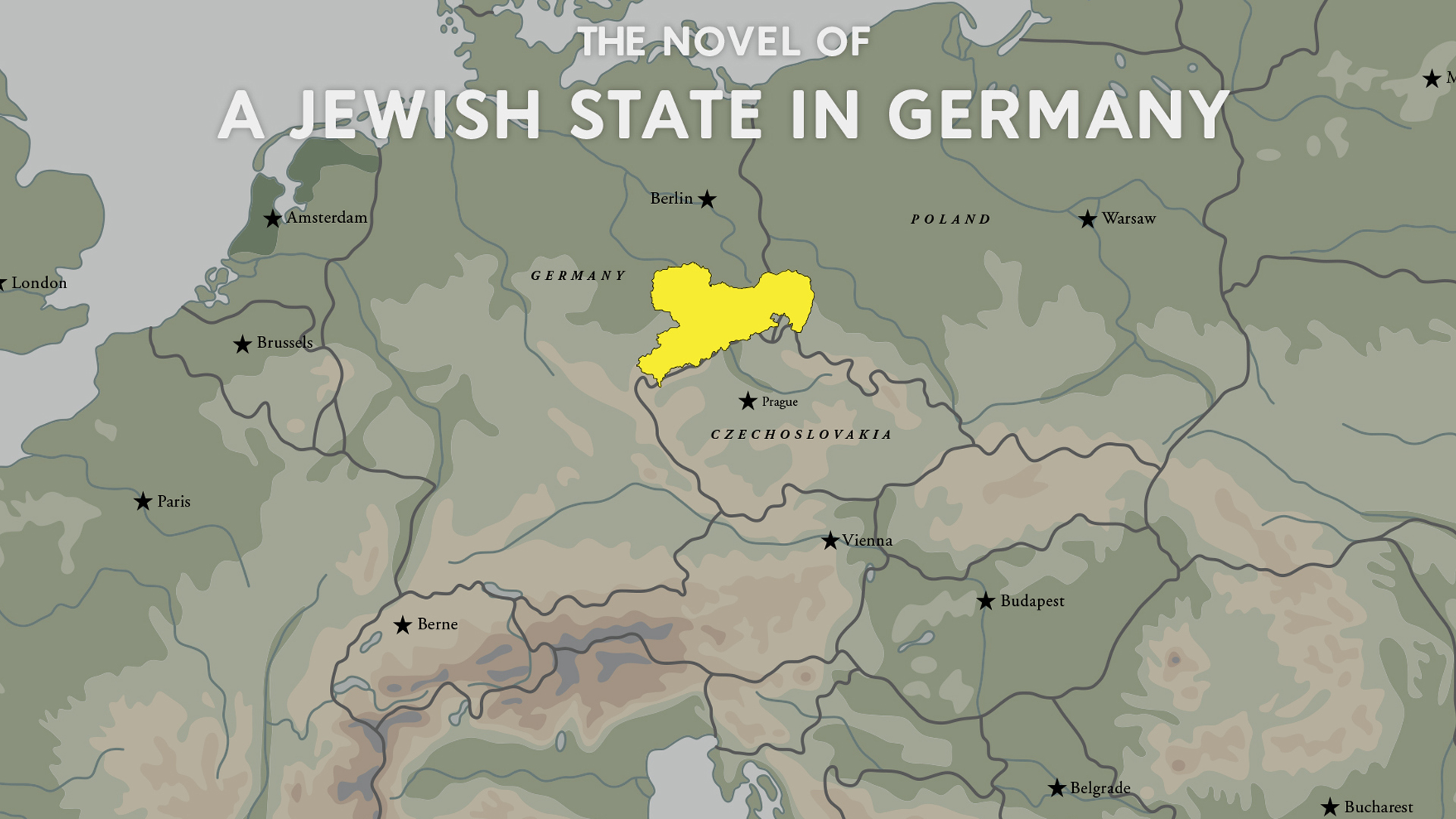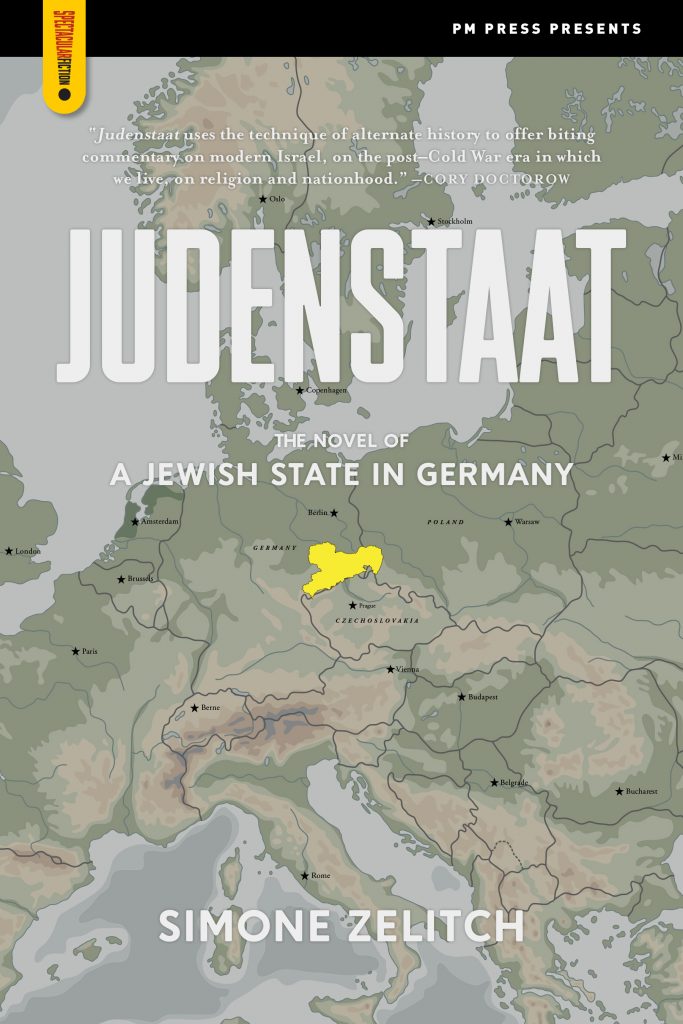Judenstaat is an alternate history noir in the vein of Philip K. Dick’s The Man in the High Castle,
set in an invented nation in the late ’80s. In Simone Zelitch’s vividly
realized version of post-World War II events, a group of Jewish
socialists known as Bundists and a handful of influential Jewish leaders
helped to found Judenstaat as a refuge for Jews. Instead of emigrating
to Israel, thousands of concentration camp survivors chose to adopt the
defiant Bundist slogan “We Are Here” and make their home in the German
region of Saxony.
Forty years later, documentarian Judit Klemmer
grieves for her assassinated husband and attempts to come to grips with
her nation’s morally complicated history. The noir elements of the
novel are introduced when she receives a mysterious note: “They lied
about the murder.” Klemmer embarks on an investigation into her
husband’s death that unwittingly leads her closer to dark secrets
surrounding Judenstaat’s relationship with the Soviet Union and the
so-called “Saxon Question.”
As in Dick’s masterwork, Judenstaat
is much more concerned with ordinary people struggling to survive in
extraordinary circumstances than in gunfights or car chases. Zelitch
explores the idea of an entire nation founded in response to trauma,
inevitably drawing comparisons to the moral and psychological state of
real-life Jewish enclaves, primarily Israel. Judenstaat reveals
the dichotomies fracturing Jewish life–religious and secular,
reactionary and reformist–in an attempt to engage with the larger
question of what it means to be Jewish in a post-Holocaust world. —Hank Stephenson, bookseller, Flyleaf Books
Discover: Judenstaat is a daring alternate history noir that imagines a documentarian’s investigation into her husband’s murder in a post-World War II Jewish state in Saxony.







